The story about how “a white filmmaker” stole Akwaeke Emezi’s work is still unfolding, but here are the details so far, including some of questions the incident is raising about plagiarism.
A couple of days ago, Nigerian writer and filmmaker Akwaeke Emezi wrote on Instagram “in which @marionalloreta, a white filmmaker, stole my work.”
The work in question is Emezi’s 2014 film titled Ududeagu. It’s a hauntingly beautiful adaptation of the Igbo folkloric figure of the spider. One of the iconic images in the film has a man lying on a bed draped in white sheet. His face is entirely masked in a shock of dreadlocks. In 2016, Barcelona-born artist Mariona Lloreta releases a film titled Amenze. In terms of theme and content, Lloreta’s story is different except for one scene in the trailer which uncannily mirrors the dreadlock scene from Emezi’s movie. A woman is lying down on blue cloth with her face partially covered in dreadlocks.
We’ve posted both videos for you to watch and compare.
UDUDEAGU from Akwaeke Emezi on Vimeo.
Amenze, In Between Worlds (film trailer) from Mariona Lloreta on Vimeo.
Lloreta did not credit Emezi’s work in any way. She did not site Emezi’s film as a source of inspiration. Reports shows that she has been presenting the film at festivals and using that image of the woman with the dreadlocked face as the main publicity image for the film.
Emezi has been very strategic about her response. Instead of simply lashing out, she went on full Beyhive mode and launched a campaign against Lloreta, calling on her own pretty extensive network of friends, fans, and colleagues to publicize the alleged theft and also to put pressure on film festivals to pull Lloreta’s work from their programs. For her, the point is not to decipher whether her work was stolen on not—she insists that it was—but to mobilize relevant communities and institutions against what she sees as a clear and unjust case of appropriation.
“Please share + boost this widely,” she writes on Instagram (@azemezi), “the image will be available on all my other social media. This is something I am bringing to the attention of the community.”
@marionalloreta‘s twitter handle has since been bombarded by accusations and insults. But the incident has also triggered a rich conversation around where to draw the line between drawing inspiration from someone’s work and outright theft.
In contrast, African Voices, an organization that runs one of the festivals where Lloreta’s work has been screened, sees it merely as a case of shared “artistic styles?”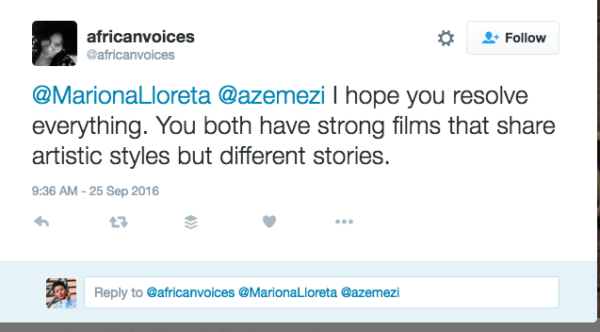
The suggestion here is that Lloreta’s use of the image was a case of chance resemblance. Emezi and Llorete miraculously made similar aesthetic choices. Or, at worse, it was a case of drawing inspiration from Emezi’s work without making the requisite attribution. In other words,t they are suggesting that Lloreta didn’t steal anything outright. Her work just happens to look like Emezi’s.
Not quite.
First of all, as noted above, the aesthetic elements of both images are just too similar to dismiss as mere chance resemblance. There is also the fact that the design of Lloreta’s poster, including the font and text arrangement, is so similar to Emezi’s.
Emezi’s point that there is no way Lloreta wasn’t aware of her work is also valid.
The fact that Lloreta situates her work within the black intellectual community means that she most likely knew about the work, which would make it strange that she did not credit Emezi or go through the requisite copyrights procedure.
What are your thoughts? Is this a ripoff or what?
For more on the unfolding conversations around the incident, read the storified tweets here.


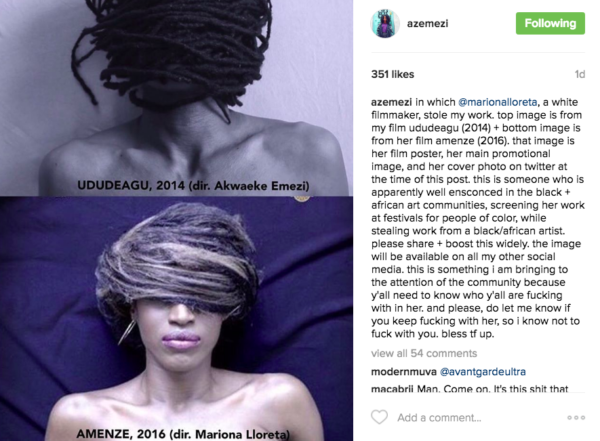
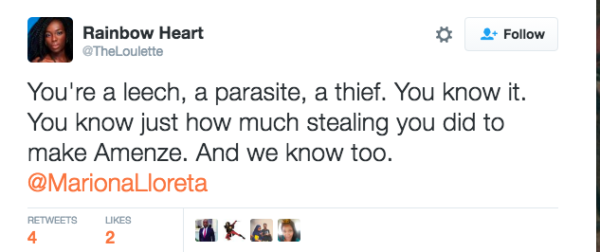
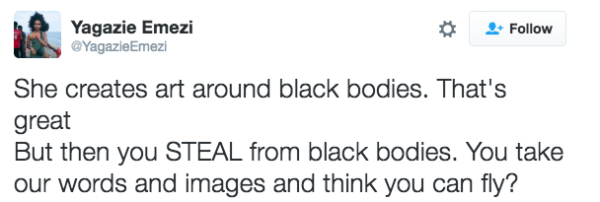
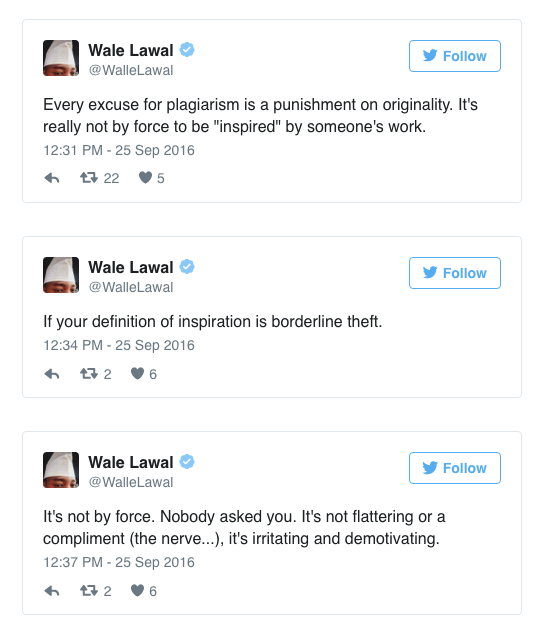
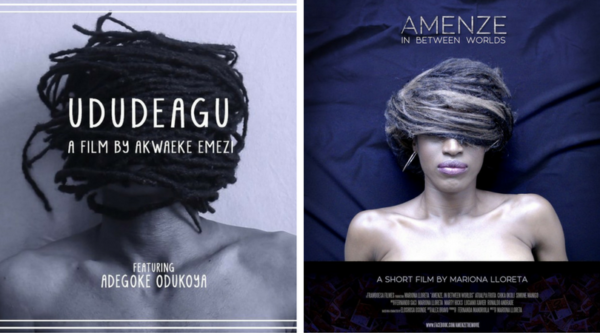
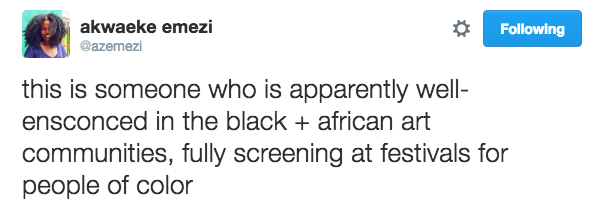






Ritu October 06, 2016 16:09
Hmm! Interesting read, but I fail to see the theft/ plagiarism here as claimed by emezi as both posters more so emezi's bares resemblance to MwangiHutter-neger don't call me (2000) work.